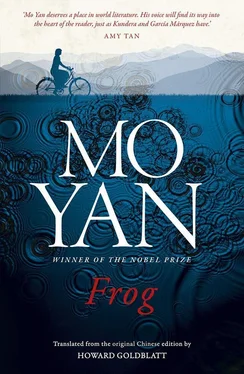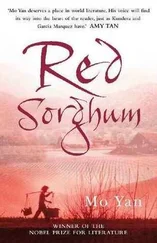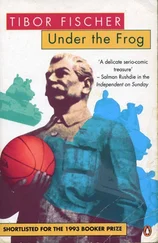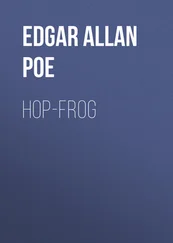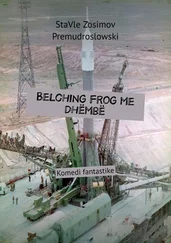Tadpole and Gugu’s family
GUGU, or WAN XIN, midwife
JIN XIU, cousin of Xiaopao, business partner of Xiao Xiachun
LITTLE LION, Gugu’s medical intern
WAN DAKOU, or WAN KOU, aka Eldest Brother, brother of Xiaopao, father of Wan Xiangqun
WAN LIUFU, father of Gugu, soldier and doctor, founder of the Xihai Underground Hospital
WAN MAN, sister of Xiaopao
WAN XIANGQUN, air force pilot, nephew of Xiaopao, son of Wan Dakou
WAN ZU, or XIAOPAO or TADPOLE, nephew of Gugu
WUGUAN, cousin of Xiaopao
YANYAN, daughter of Xiaopao
Chen Bi’s family
AILIAN, mother of Chen Bi
CHEN BI, classmate of Xiaopao
CHEN E, father of Chen Bi
CHEN ER, daughter of Chen Bi
CHEN MEI, daughter of Chen Bi
Other Characters
(in alphabetical order)
TEACHER CHEN
DU BOZI, a villager/fisherman
FAN, carpenter
FANG LIANHUA, Wang Jiao’s wife
FLATHEAD, rafter, son of old classmate of Xiaopao
GAO MEN, village beggar
GENG XIULIAN, wife of Zhang Quan
HAO DASHOU, the clay-doll maker
HUANG JUN, aka Melon Huang, hospital director, the son of Huang Pi from Hexi Village
HUANG QIUYA, doctor at health centre, enemy of Gugu
DOCTOR LI
POLITICAL COMMISSAR LI
LI SHOU, son of Teacher Yu, younger schoolmate of Xiaopao
CHIEF LIU, Armed Forces Bureau
LU HUAHUA, village beggar
LU MAZI, civil administration clerk
LÜ YA, brigade commander
POSTAL DIRECTOR MA
NING YAO, commune security chief
QIN HE, brother of Qin Shan, beggar/actor, boat pilot, clay-doll maker
QIN SHAN, commune Party secretary, brother of Qin He
QIU, commune Party secretary (and Qin Shan’s successor)
SESAME TWIST, wife of Yuan Sai
DIRECTOR SHEN, Bureau of Health
COMMANDER SUGITANI, Japanese Army
SUGITANI AKIHITO, mentor to Xiaopao
TIAN GUIHUA, old midwife
WANG DAN, daughter of Wang Jiao, twin of Wang Gan, classmate of Xiaopao
WANG GAN, son of Wang Jiao, twin of Wang Dan, classmate of Xiaopao
WANG HUAN, the bean curd peddler
WANG JIAO, owner of a horse and cart, father of Wang Dan and Wang Gan
WANG JINSHAN, aka OLD WANG, the school cook
WANG RENMEI, daughter of Wang Jinshan, wife of Xiaopao
WANG XIAOTI, Gugu’s fiancé, Air Force pilot, traitor
WANG XIAOMEI, a seventeen-year-old girl from Wang Village, Director Huang’s lover
SECRETARY WU, commune Party secretary, 1980s
WU JINBANG, school principal
XIAO BI, office manager of bullfrog farm, sculptor
XIAO SHANGCHUN, stretcher-bearer in the Eighth Route Army, commune granary watchman, Windstorm Rebel Corps Commander, enemy of Gugu, father of Xiao Xiachun
XIAO XIACHUN, classmate of Xiaopao, son of Xiao Shangchun, entrepreneur
XIE BAIZHUA, restaurant owner
XIE XIAOQUE, the son of Xie Baizhua
COMMANDER XU, Eighth Route Army
TEACHER XUE
YAN, assistant director of the commune
YANG LIN, county Party secretary
CHAIRWOMAN YANG XIN, family-planning committee
YANG XIONG, county chief, son of Yang Lin
TEACHER YU
YUAN LIAN, village Party secretary
YUAN SAI, son of Yuan Lian, classmate of Xiaopao
ZHANG JINYA, Party secretary of Dongfeng village
ZHANG QUAN, from Dongfeng village
Dear Sugitani Akihito sensei,
It has been nearly a month since we said goodbye, but I can relive virtually every moment of our time together in my hometown as if it were yesterday. With no concern for age or physical frailties, you crossed land and sea to come to this out-of-the-way spot and engage in literary conversations with me and with local fans of literature; we were deeply moved. On the second morning of the year, you favoured us with a presentation in the county guesthouse auditorium that you called ‘Literature and Life’. With your permission, we would like to publish a transcription of the taped lecture in the local publication Frog Calls , so as to make available to those who were unable to attend in person a chance to appreciate and learn from your use of language.
On the morning of the first day of the year I accompanied you on a visit to my aunt, an obstetrician for more than fifty years, and though she spoke too quickly in her accented Chinese for you to grasp everything she said, I am sure she left a deep impression on you. In your talk the next morning you cited her often in support of your views of literature. You said you came away with an image of a doctor racing across a frozen river on a bicycle; another of her with a medical kit slung over her back and an open umbrella in one hand, trouser cuffs rolled up, as she forces her way through a mass of croaking frogs; yet another of a doctor laughing joyfully as she holds a newborn infant in her hands, her sleeves spattered with blood; and finally one of a doctor with a care-laden face, a cigarette dangling from her lips, clothing rumpled… you said that all these mental pictures sometimes come together into a single image and at other times split into discrete fragments, like a series of carvings. You urged local literature fans to create poignant works of art out of my aunt’s life, either in fiction, in verse, or in drama. Sensei, your encouragement has produced a creative passion in many of us. An associate at the county cultural centre has already begun a novel about a village obstetrician, and though my understanding of what my aunt accomplished is much greater than his, I do not want to enter into a competition and will leave the writing of a novel to him. What I want to do, sensei, is write a play about my aunt’s life. On the night of the second, when we were talking as we sat on the kang at my house, I experienced an epiphany thanks to your high praise and detailed analyses, as well as your unique insights into the plays of the Frenchman, Sartre. I want to write, I feel I must write librettos as fine as The Flies and Dirty Hands , with the audacious goal of becoming a great playwright. With your instruction as a guide, I will proceed slowly, without forcing the issue, as patient as a frog on a lily pad waiting for insects to come its way. But when I put pen to paper, it will be with the speed of a frog jumping up to snatch an insect out of the air.
Читать дальше
